Events
| Name | organizer | Where |
|---|---|---|
| MBCC “Doing Business with Mongolia seminar and Christmas Receptiom” Dec 10. 2025 London UK | MBCCI | London UK Goodman LLC |
NEWS
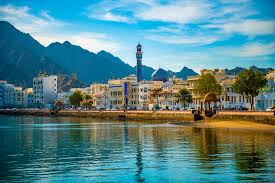
Oman, Mongolia explore ways of promoting cooperation www.muscatdaily.com
H E Sayyid Badr bin Hamad al Busaidi, Foreign Minister, received in his office Battsetseg Batmunkh, Minister of Foreign Affairs of Mongolia, on Wednesday within the context of her current official visit to Oman.
During the meeting, the two sides discussed means of promoting relations between the two countries and exploring new horizons for cooperation in diplomatic, commercial and cultural areas.
They also exchanged views on a set of regional and international issues of common concern.
H E Sayyid Badr stressed Oman’s keenness to enhance cooperation with Mongolia in the fields of investment, trade exchange, tourism, technology and academic cooperation.
On her turn, the Mongolian minister underlined her country’s eagerness to boost cooperation with Oman. She lauded Oman’s vision in backing international peace and stability.
The meeting was attended by H E Bulgan Enkhtuvshin, Ambassador of Mongolia to Oman, Sheikh Abdulaziz bin Mohammed al Hosni, Head of Asian and Pacific Department in Foreign Ministry, and several officials from both sides.

The “Energy Globe Award Mongolia 2024” goes to the Mongolian Women's Fund www.advantageaustria.org
The National Winner of the “Energy Globe Award 2024” for Mongolia is the Mongolian Women’s Fund. The Austrian Ambassador to Mongolia Mr Andreas Rieken and Commercial Counsellor Franz Roessler handed over in in Ulaanbaatar on Feb. 13, 2025 the Energy Globe award for Mongolia to Ms. Agni Baljinnyam and Ms. Ariunaa Tsogtoo representing the Mongolian Women's Fund (MONES). The ceremony was attended by the Honorary Consul of Austria to Mongolia Mrs. Sergelen Davaakhuu and other dignitaries from Mongolia and Austria.
The winning project aims to strengthen the ability of Mongolian women herders to adapt to the conditions of a changing climate through better livestock breeding techniques and financial independence. It builds the capacity of women herders to increase the productivity and sustainability of their livestock farming, thereby increasing their income and making them less vulnerable to climate change. The project promotes women’s empowerment with the aim of transforming them into active agents of change and advocates of climate-smart behavior. The project is implemented by the Mongolian Women's Fund (MONES). The project’s technical team provides technical training and coaching to 100 selected households in each of the two target sites. Through ongoing training, the women learn best-practice techniques for breeding and feeding of goats and harvesting cashmere and implementing sustainable production standards.
Since 1999, the Energy Globe Award has annually honoured outstanding sustainable projects that are committed to resource conservation, energy efficiency and the increased use of renewable energies. The aim of the award is to present innovative and forward-looking solutions to a broad public and thus promote sustainable action worldwide.
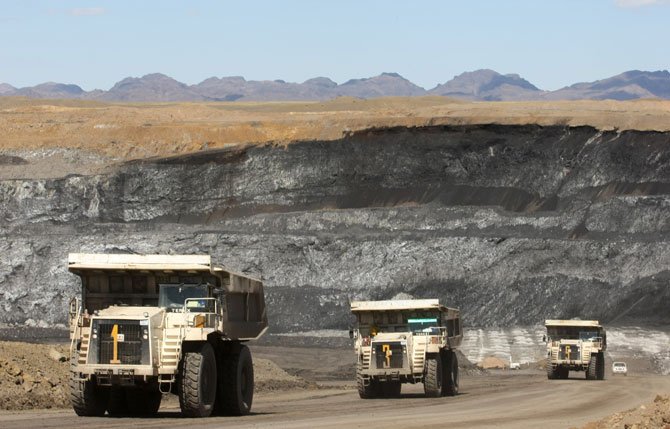
“Mongolrostsvetmet” Renamed to “Erdenes Critical Minerals” www.montsame.mn
During its regular session on February 19, 2025, the Cabinet of Mongolia decided to rename the state-owned enterprise “Mongolrostsvetmet” as “Erdenes Critical Minerals,” and approved its revised procedure as an annex.
To secure the financial resources required for the exploration, development, mining, and processing of critical minerals, and in connection with the newly approved procedure, relevant officials were instructed to set the organizational structure and maximum staffing limits for the state-owned enterprise “Erdenes Critical Minerals,” and to provide its leadership and organizational management.
Under the 2024–2028 Action Program of the Government of Mongolia, 14 “mega projects” will be implemented within four main policy areas. The Action Program also states that “Projects to develop plants for processing rare earth elements will be supported at the policy level.” Taking into account the infrastructure, experience, human resource capacity, and potential of the state-owned enterprise “Mongolrostsvetmet,” the Government decided to rename it to “Erdenes Critical Minerals,” expand its operational focus, and revise its procedure so that it assumes responsibility for the research, exploration, extraction, and utilization of rare earth elements.
With the recent amendments to the enterprise’s procedure to ensure implementation of the Law on Sovereign Wealth Fund, “Erdenes Mongol” LLC will oversee the group’s activities through a unified strategic plan, management, leadership, and organizational structure. The dividends from the Government’s equity share in these legal entities will be collected and distributed into the Savings Fund in accordance with the Law on Sovereign Wealth Fund. The remaining portion will be utilized to finance projects and programs that support future business development and generate income and value, increasing returns from Mongolia’s mineral resources and ensuring fair and equitable distribution of benefits to citizens.

Even and odd license plate restrictions to take effect this Saturday www.gogo.mn
A temporary vehicle restriction based on license plate numbers will be enforced in Ulaanbaatar from this Saturday, February 22.
D.Badarsan, coordinator of the capital's Road Traffic Congestion Reduction Program, along with relevant officials from the Traffic Police Authority, provided details on the regulation.
A public survey conducted on www.ulaanbaatar.mn and 10 other websites on February 11 showed that 68% of respondents supported the odd-even license plate restriction, while 23% opposed it. Based on these results, authorities decided to implement the measure from February 22 to 27, with restrictions in place from 08:00 to 20:00 daily.
The odd-even restriction will apply to several key intersections, including: Tavan Shar intersection, Chuluun Ovoo Intersection, 32iin Toirog Intersection, MIS Intersection, Dund Gol road, Gandhi Street, E-Mart intersection.
Authorities urge citizens to comply with traffic police instructions and follow regulations during the restriction period which lasts 6 days.
The restriction does not apply to diplomatic vehicles, hospital and emergency services and media organization vehicles
License Plate Schedule
February 22, 24, 26 – Vehicles with odd-numbered license plates can operate.
February 23, 25, 27 – Vehicles with even-numbered license plates can operate.
Officials implemented this restriction to reduce congestion, particularly during the holiday season when traffic is heavy around markets and shopping centers.

Orano looks to Mongolia as new source for uranium as Niger problems drag on www.reuters.com
French nuclear fuels company Orano is looking to increase output of uranium from new mines in Mongolia and elsewhere to meet rising demand from the nuclear power industry and offset production from its stalled projects in Niger, said CEO Nicolas Maes.
Orano has had problems exporting uranium from its mines in Niger since the country was taken over by a military junta in 2023.
In January, it signed a preliminary agreement with Mongolia to develop a mining project with potential output of 2,600 metric tons a year by 2044.
It is also looking at expanding output in Uzbekistan as well as Canada, its top source of the material, Maes told journalists.
"We have considerably developed this diversification and that makes us much stronger with regard to geopolitical risk," he said.
Reporting by Forrest Crellin. Editing by Jane Merriman
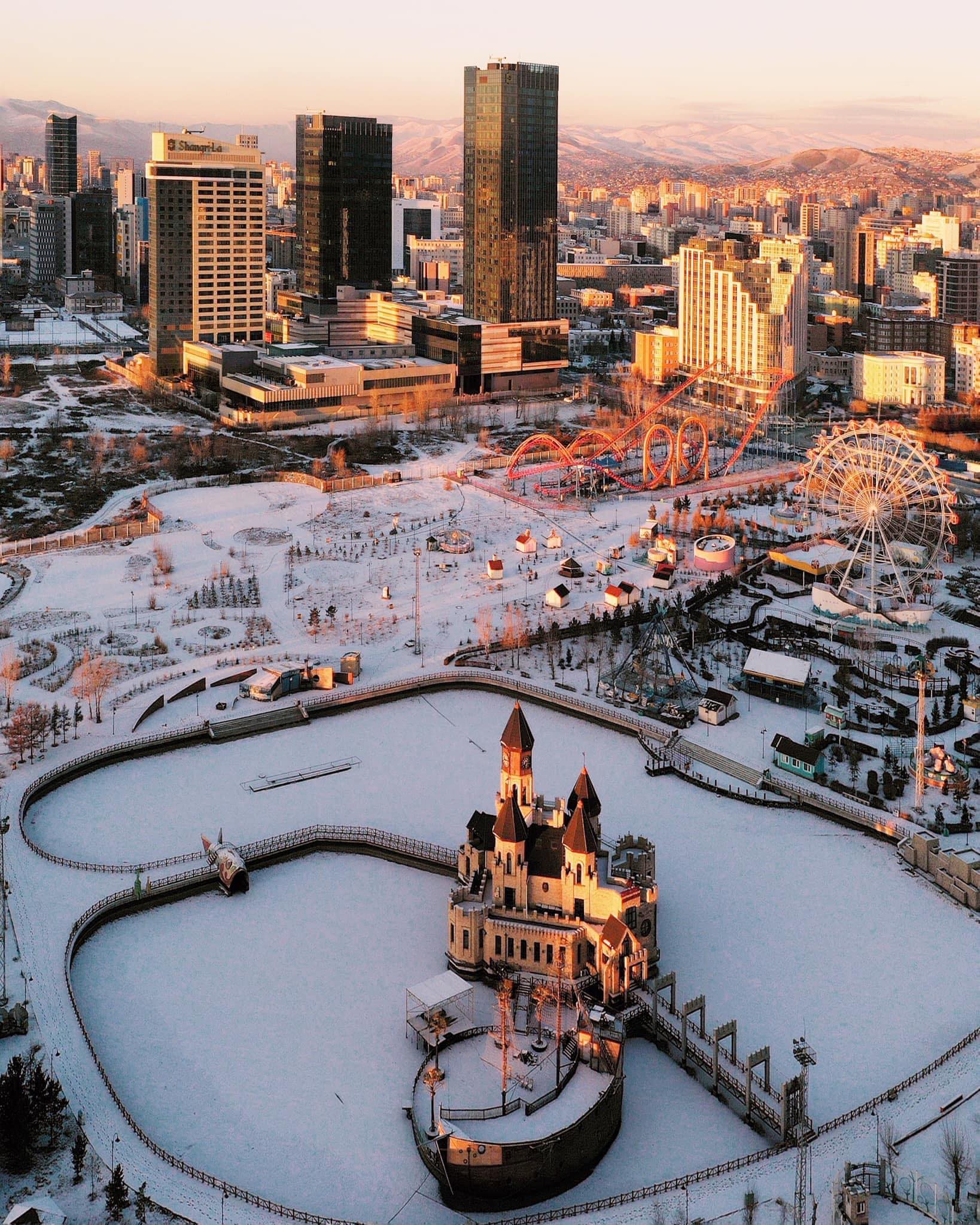
121 citizens from 8 countries whose residence permits have expired have been deported www.eagle.mn
In January, the Department of Foreign Citizens and Nationalities issued visa permits to 1,724 foreign citizens, issued visas to 674 citizens, and issued e-visas to 2,755 citizens from 24 countries through the e-visa.mn system. Also, based on the approval of the competent authorities, 1,217 foreign citizens were granted residence permits in Mongolia, 3,909 citizens had their residence permits extended, and 2,029 citizens were deregistered.
Four planned and 12 unplanned inspections were conducted, 43 business entities and organizations, 651 passports and replacement documents of foreign citizens were inspected, a total of 18 violations were detected and relevant measures were taken. In addition, 1,767 foreign citizens who committed violations were fined under the Law on Violations, and 1 business entity was issued an official demand.
In addition, 121 citizens from 8 countries were deported for reasons such as avoiding leaving Mongolia despite their residence permits having expired, violating visa and registration regulations twice or more and being held liable under the law, and exceeding the validity of their temporary visas.
As of January 2025, there were 31,092 foreign citizens registered to reside in Mongolia for official and private purposes. Of these, 12,852 were workers, 3,816 were investors, 4,812 were for family and other personal purposes, 1,828 were immigrants, 116 were for religious purposes, and 639 were for official purposes.
Source: Mongolian Immigration Agency

Cuban Boxer and Coach Appointed as Head Coach of the National Team of Mongolia www.montsame.mn
In January 2025, the Mongolian Boxing Federation hosted the Mongolian Elite National Boxing Championships in Ulaanbaatar City, where winners and medalists were selected to form the National Team of Mongolia. Cuban boxer and coach Rubén Pineiro Sánchez has been appointed as the Head Coach of the National Boxing Team of Mongolia.
Head Coach Sánchez has signed a six-month contract to lead the team. Notably, he previously coached Olympic Champion, Hero of Labor of Mongolia, and Honored Athlete of Mongolia Badar-Uugan Enkhbat in 2004-2005.
In 2025, Mongolian boxers will compete under the guidance of Head Coach Rubén Pineiro Sánchez, Honored Athlete of Mongolia Otgondalai Dorjnyambuu, and International Masters of Sport J. Erkin and O. Batkhuu. Their first competition will be the World Boxing Cup 2025, a key ranking tournament set to begin on February 29 in Brazil.

Foreign Minister of Mongolia to Pay Official Visit to the Sultanate of Oman www.montsame.mn
At the invitation of the Minister of Foreign Affairs of the Sultanate of Oman Sayyid Badr bin Hamad bin Hamud Al-Busaidi, Minister of Foreign Affairs of Mongolia Battsetseg Batmunkh will pay an official visit to the Sultanate of Oman on February 18-20, 2025.
During the official visit, Foreign Minister Battsetseg plans to hold official talks with the Minister of Foreign Affairs of Oman and meet with the Deputy Prime Minister for the Council of Ministers, the Minister of Commerce, Industry and Investment Promotion, and officials of the Oman Investment Authority. The agenda of the meetings and talks includes maintaining the momentum of bilateral relations that have been intensifying in recent years, expanding cooperation in trade, investment, economy, mining, energy, and tourism, as well as exchanging views on international and regional issues of mutual interest.
This official visit is a reciprocal visit to Oman’s Foreign Minister’s visit to Mongolia in 2024 and is notable as the first Foreign Ministerial level visit from Mongolia after about 30 years, reported the Ministry of Foreign Affairs. Mongolia and the Sultanate of Oman established diplomatic relations on April 27, 1992.
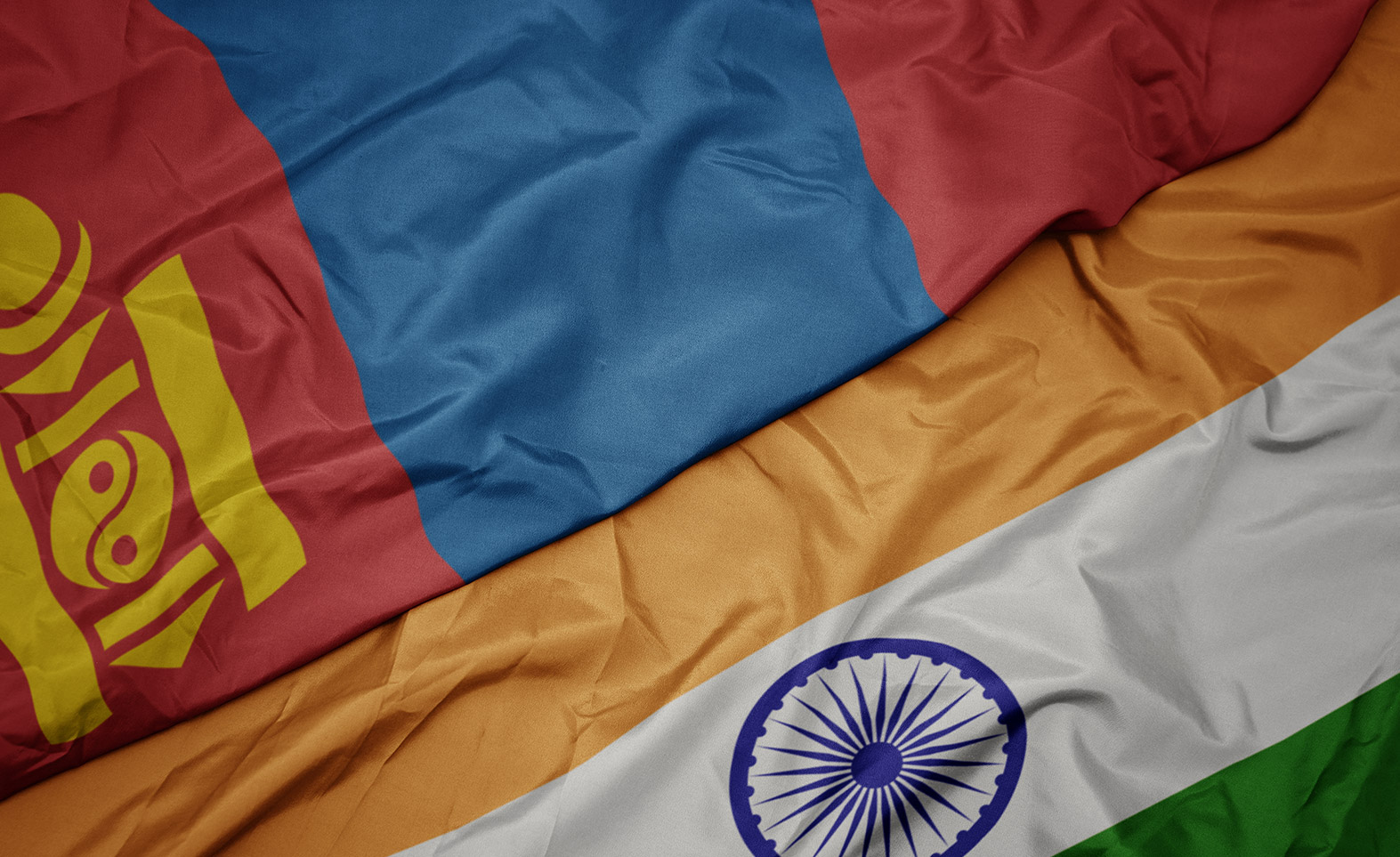
Mongolia and India to Celebrate the 70th Anniversary of Diplomatic Relations www.montsame.mn
Minister of Foreign Affairs of Mongolia Battsetseg Batmunkh met with Minister of External Affairs of the Republic of India Subrahmanyam Jaishankar on February 15, 2025, on the sidelines of the 61st Munich Security Conference.
At the meeting, the Foreign Ministers concurred to hold high-level visits, business forums, and cultural events between the two countries in connection with the historic 70th anniversary of the establishment of diplomatic relations between Mongolia and India this year. The Ministers also agreed to deepen bilateral relations through cooperation mechanisms such as the Intergovernmental Commission and Consultative Meetings between the Foreign Ministries and to explore opportunities for introducing advanced Indian technology to the Mongolian agricultural sector and for hiring Indian English language teachers in Mongolia.
Foreign Minister Battsetseg expressed her gratitude to the Indian side for its support in arranging additional financing for the Oil Refinery Plant Project. The Ministers confirmed their commitment to the continued collaboration to implement the project within the planned timeframe.
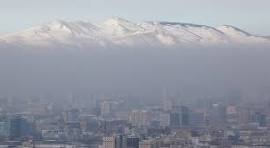
Struggling to breathe: In Mongolia, long known as the Land of the Blue Sky, air pollution has reached a crisis point www.theglobeandmail.com
Mongolia is known as the Land of the Blue Sky.
But for the 1.6 million residents of its capital, Ulaanbaatar, clear skies are a rare luxury.
A toxic pall hangs over the city, particularly during the winter months. Ulaanbaatar, which sits in a valley, is among cities with the worst air quality in the world.
Residents know this – they can see the pollution in the air and taste it in their food. And they can trace its effects in the health of their children.
In the world’s coldest capital, the average temperature in February is -18°C. However, the majority of its citizens live in yurts (called ger) and other inexpensive forms of housing – dwellings that require a lot of energy to heat.
Traditionally, Mongolians burned a wood fire in a central hearth, but over many years of Soviet rule, that method was replaced with coal stoves, with dangerous results.
Three hundred Mongolians die each year from air-pollution-related illnesses. Of those, 240 are children. As of 2020, 38.8 per cent of all reported respiratory diseases were among children under the age of five.
Some nurseries are equipped with air monitors and purifiers.
Pregnant women suffer, too, with fetal deaths spiking in the more polluted winter months.
“It’s not just winter pollution,” says activist Dulguun Ganbaatar. “Coal dust settles on the soil, plants and water.”
Mongolia’s economy is reliant on coal. Raw materials account for more than 90 per cent of exports. And coal plants provide 93 per cent of the country’s energy.
(By comparison, recent figures show coal provides 3.8 per cent of Canada’s electricity.)
Traffic, as elsewhere in the world, also contributes. The number of vehicle registrations has doubled over the past decade.
Mongolian cars and trucks, often with decades-old engines, run on less refined fuel, and their emissions make up 20 per cent of the city’s pollution. Since 2016, citizens have been staging yearly protests in the thousands, asking the government to intervene.
In 2017, the cabinet approved a National Program on Reduction of Air and Environmental Pollution, but their stated goals have not been reached – such as a target to halve air pollution by 2025.
The protesters say that foreign aid and their own government’s money have not provided the results they should have.
“It’s the wind that solves the problem, not the government,” says Ganjavkhlan Chadraabal, the organizer of a recent protest in Ulaanbaatar.
“Billions have been invested, with no result.”
In 2019, in an attempt to improve indoor air, the government banned the use of raw coal, replacing it with briquettes made from a coal byproduct called semicoke.
However, the quality of the briquettes is now under question.
Some users allege the briquettes contain toxic additives, and an inspection of the Tavan Tolgoi Fuel Company is under way.
Through the efforts of various non-profits and individuals, 70,000 people signed a petition asking parliament to hold a public hearing on air pollution and government spending.
Even though air pollution-related fatalities are lower than in 2016, improvements are relative.
In 2024, air quality in the winter was overwhelmingly bad, with measurements far exceeding health guidelines.
“What’s missing is political will. How many more lives must be lost, and how much more suffering must we endure before leaders take decisive action?”
Photography and story
by Natalya Saprunova
About the photographer
Born in Murmansk, in the Arctic region of Russia, Natalya Saprunova is a Paris-based photographer. Her work explores societal issues such as identity, environment, climate change, youth, femininity and spirituality. Since 2019 she has been travelling the far north, visiting the Saami tundras, Yakutia, the Canadian Arctic and Mongolia.
- «
- 1
- 2
- 3
- 4
- 5
- 6
- 7
- 8
- 9
- 10
- 11
- 12
- 13
- 14
- 15
- 16
- 17
- 18
- 19
- 20
- 21
- 22
- 23
- 24
- 25
- 26
- 27
- 28
- 29
- 30
- 31
- 32
- 33
- 34
- 35
- 36
- 37
- 38
- 39
- 40
- 41
- 42
- 43
- 44
- 45
- 46
- 47
- 48
- 49
- 50
- 51
- 52
- 53
- 54
- 55
- 56
- 57
- 58
- 59
- 60
- 61
- 62
- 63
- 64
- 65
- 66
- 67
- 68
- 69
- 70
- 71
- 72
- 73
- 74
- 75
- 76
- 77
- 78
- 79
- 80
- 81
- 82
- 83
- 84
- 85
- 86
- 87
- 88
- 89
- 90
- 91
- 92
- 93
- 94
- 95
- 96
- 97
- 98
- 99
- 100
- 101
- 102
- 103
- 104
- 105
- 106
- 107
- 108
- 109
- 110
- 111
- 112
- 113
- 114
- 115
- 116
- 117
- 118
- 119
- 120
- 121
- 122
- 123
- 124
- 125
- 126
- 127
- 128
- 129
- 130
- 131
- 132
- 133
- 134
- 135
- 136
- 137
- 138
- 139
- 140
- 141
- 142
- 143
- 144
- 145
- 146
- 147
- 148
- 149
- 150
- 151
- 152
- 153
- 154
- 155
- 156
- 157
- 158
- 159
- 160
- 161
- 162
- 163
- 164
- 165
- 166
- 167
- 168
- 169
- 170
- 171
- 172
- 173
- 174
- 175
- 176
- 177
- 178
- 179
- 180
- 181
- 182
- 183
- 184
- 185
- 186
- 187
- 188
- 189
- 190
- 191
- 192
- 193
- 194
- 195
- 196
- 197
- 198
- 199
- 200
- 201
- 202
- 203
- 204
- 205
- 206
- 207
- 208
- 209
- 210
- 211
- 212
- 213
- 214
- 215
- 216
- 217
- 218
- 219
- 220
- 221
- 222
- 223
- 224
- 225
- 226
- 227
- 228
- 229
- 230
- 231
- 232
- 233
- 234
- 235
- 236
- 237
- 238
- 239
- 240
- 241
- 242
- 243
- 244
- 245
- 246
- 247
- 248
- 249
- 250
- 251
- 252
- 253
- 254
- 255
- 256
- 257
- 258
- 259
- 260
- 261
- 262
- 263
- 264
- 265
- 266
- 267
- 268
- 269
- 270
- 271
- 272
- 273
- 274
- 275
- 276
- 277
- 278
- 279
- 280
- 281
- 282
- 283
- 284
- 285
- 286
- 287
- 288
- 289
- 290
- 291
- 292
- 293
- 294
- 295
- 296
- 297
- 298
- 299
- 300
- 301
- 302
- 303
- 304
- 305
- 306
- 307
- 308
- 309
- 310
- 311
- 312
- 313
- 314
- 315
- 316
- 317
- 318
- 319
- 320
- 321
- 322
- 323
- 324
- 325
- 326
- 327
- 328
- 329
- 330
- 331
- 332
- 333
- 334
- 335
- 336
- 337
- 338
- 339
- 340
- 341
- 342
- 343
- 344
- 345
- 346
- 347
- 348
- 349
- 350
- 351
- 352
- 353
- 354
- 355
- 356
- 357
- 358
- 359
- 360
- 361
- 362
- 363
- 364
- 365
- 366
- 367
- 368
- 369
- 370
- 371
- 372
- 373
- 374
- 375
- 376
- 377
- 378
- 379
- 380
- 381
- 382
- 383
- 384
- 385
- 386
- 387
- 388
- 389
- 390
- 391
- 392
- 393
- 394
- 395
- 396
- 397
- 398
- 399
- 400
- 401
- 402
- 403
- 404
- 405
- 406
- 407
- 408
- 409
- 410
- 411
- 412
- 413
- 414
- 415
- 416
- 417
- 418
- 419
- 420
- 421
- 422
- 423
- 424
- 425
- 426
- 427
- 428
- 429
- 430
- 431
- 432
- 433
- 434
- 435
- 436
- 437
- 438
- 439
- 440
- 441
- 442
- 443
- 444
- 445
- 446
- 447
- 448
- 449
- 450
- 451
- 452
- 453
- 454
- 455
- 456
- 457
- 458
- 459
- 460
- 461
- 462
- 463
- 464
- 465
- 466
- 467
- 468
- 469
- 470
- 471
- 472
- 473
- 474
- 475
- 476
- 477
- 478
- 479
- 480
- 481
- 482
- 483
- 484
- 485
- 486
- 487
- 488
- 489
- 490
- 491
- 492
- 493
- 494
- 495
- 496
- 497
- 498
- 499
- 500
- 501
- 502
- 503
- 504
- 505
- 506
- 507
- 508
- 509
- 510
- 511
- 512
- 513
- 514
- 515
- 516
- 517
- 518
- 519
- 520
- 521
- 522
- 523
- 524
- 525
- 526
- 527
- 528
- 529
- 530
- 531
- 532
- 533
- 534
- 535
- 536
- 537
- 538
- 539
- 540
- 541
- 542
- 543
- 544
- 545
- 546
- 547
- 548
- 549
- 550
- 551
- 552
- 553
- 554
- 555
- 556
- 557
- 558
- 559
- 560
- 561
- 562
- 563
- 564
- 565
- 566
- 567
- 568
- 569
- 570
- 571
- 572
- 573
- 574
- 575
- 576
- 577
- 578
- 579
- 580
- 581
- 582
- 583
- 584
- 585
- 586
- 587
- 588
- 589
- 590
- 591
- 592
- 593
- 594
- 595
- 596
- 597
- 598
- 599
- 600
- 601
- 602
- 603
- 604
- 605
- 606
- 607
- 608
- 609
- 610
- 611
- 612
- 613
- 614
- 615
- 616
- 617
- 618
- 619
- 620
- 621
- 622
- 623
- 624
- 625
- 626
- 627
- 628
- 629
- 630
- 631
- 632
- 633
- 634
- 635
- 636
- 637
- 638
- 639
- 640
- 641
- 642
- 643
- 644
- 645
- 646
- 647
- 648
- 649
- 650
- 651
- 652
- 653
- 654
- 655
- 656
- 657
- 658
- 659
- 660
- 661
- 662
- 663
- 664
- 665
- 666
- 667
- 668
- 669
- 670
- 671
- 672
- 673
- 674
- 675
- 676
- 677
- 678
- 679
- 680
- 681
- 682
- 683
- 684
- 685
- 686
- 687
- 688
- 689
- 690
- 691
- 692
- 693
- 694
- 695
- 696
- 697
- 698
- 699
- 700
- 701
- 702
- 703
- 704
- 705
- 706
- 707
- 708
- 709
- 710
- 711
- 712
- 713
- 714
- 715
- 716
- 717
- 718
- 719
- 720
- 721
- 722
- 723
- 724
- 725
- 726
- 727
- 728
- 729
- 730
- 731
- 732
- 733
- 734
- 735
- 736
- 737
- 738
- 739
- 740
- 741
- 742
- 743
- 744
- 745
- 746
- 747
- 748
- 749
- 750
- 751
- 752
- 753
- 754
- 755
- 756
- 757
- 758
- 759
- 760
- 761
- 762
- 763
- 764
- 765
- 766
- 767
- 768
- 769
- 770
- 771
- 772
- 773
- 774
- 775
- 776
- 777
- 778
- 779
- 780
- 781
- 782
- 783
- 784
- 785
- 786
- 787
- 788
- 789
- 790
- 791
- 792
- 793
- 794
- 795
- 796
- 797
- 798
- 799
- 800
- 801
- 802
- 803
- 804
- 805
- 806
- 807
- 808
- 809
- 810
- 811
- 812
- 813
- 814
- 815
- 816
- 817
- 818
- 819
- 820
- 821
- 822
- 823
- 824
- 825
- 826
- 827
- 828
- 829
- 830
- 831
- 832
- 833
- 834
- 835
- 836
- 837
- 838
- 839
- 840
- 841
- 842
- 843
- 844
- 845
- 846
- 847
- 848
- 849
- 850
- 851
- 852
- 853
- 854
- 855
- 856
- 857
- 858
- 859
- 860
- 861
- 862
- 863
- 864
- 865
- 866
- 867
- 868
- 869
- 870
- 871
- 872
- 873
- 874
- 875
- 876
- 877
- 878
- 879
- 880
- 881
- 882
- 883
- 884
- 885
- 886
- 887
- 888
- 889
- 890
- 891
- 892
- 893
- 894
- 895
- 896
- 897
- 898
- 899
- 900
- 901
- 902
- 903
- 904
- 905
- 906
- 907
- 908
- 909
- 910
- 911
- 912
- 913
- 914
- 915
- 916
- 917
- 918
- 919
- 920
- 921
- 922
- 923
- 924
- 925
- 926
- 927
- 928
- 929
- 930
- 931
- 932
- 933
- 934
- 935
- 936
- 937
- 938
- 939
- 940
- 941
- 942
- 943
- 944
- 945
- 946
- 947
- 948
- 949
- 950
- 951
- 952
- 953
- 954
- 955
- 956
- 957
- 958
- 959
- 960
- 961
- 962
- 963
- 964
- 965
- 966
- 967
- 968
- 969
- 970
- 971
- 972
- 973
- 974
- 975
- 976
- 977
- 978
- 979
- 980
- 981
- 982
- 983
- 984
- 985
- 986
- 987
- 988
- 989
- 990
- 991
- 992
- 993
- 994
- 995
- 996
- 997
- 998
- 999
- 1000
- 1001
- 1002
- 1003
- 1004
- 1005
- 1006
- 1007
- 1008
- 1009
- 1010
- 1011
- 1012
- 1013
- 1014
- 1015
- 1016
- 1017
- 1018
- 1019
- 1020
- 1021
- 1022
- 1023
- 1024
- 1025
- 1026
- 1027
- 1028
- 1029
- 1030
- 1031
- 1032
- 1033
- 1034
- 1035
- 1036
- 1037
- 1038
- 1039
- 1040
- 1041
- 1042
- 1043
- 1044
- 1045
- 1046
- 1047
- 1048
- 1049
- 1050
- 1051
- 1052
- 1053
- 1054
- 1055
- 1056
- 1057
- 1058
- 1059
- 1060
- 1061
- 1062
- 1063
- 1064
- 1065
- 1066
- 1067
- 1068
- 1069
- 1070
- 1071
- 1072
- 1073
- 1074
- 1075
- 1076
- 1077
- 1078
- 1079
- 1080
- 1081
- 1082
- 1083
- 1084
- 1085
- 1086
- 1087
- 1088
- 1089
- 1090
- 1091
- 1092
- 1093
- 1094
- 1095
- 1096
- 1097
- 1098
- 1099
- 1100
- 1101
- 1102
- 1103
- 1104
- 1105
- 1106
- 1107
- 1108
- 1109
- 1110
- 1111
- 1112
- 1113
- 1114
- 1115
- 1116
- 1117
- 1118
- 1119
- 1120
- 1121
- 1122
- 1123
- 1124
- 1125
- 1126
- 1127
- 1128
- 1129
- 1130
- 1131
- 1132
- 1133
- 1134
- 1135
- 1136
- 1137
- 1138
- 1139
- 1140
- 1141
- 1142
- 1143
- 1144
- 1145
- 1146
- 1147
- 1148
- 1149
- 1150
- 1151
- 1152
- 1153
- 1154
- 1155
- 1156
- 1157
- 1158
- 1159
- 1160
- 1161
- 1162
- 1163
- 1164
- 1165
- 1166
- 1167
- 1168
- 1169
- 1170
- 1171
- 1172
- 1173
- 1174
- 1175
- 1176
- 1177
- 1178
- 1179
- 1180
- 1181
- 1182
- 1183
- 1184
- 1185
- 1186
- 1187
- 1188
- 1189
- 1190
- 1191
- 1192
- 1193
- 1194
- 1195
- 1196
- 1197
- 1198
- 1199
- 1200
- 1201
- 1202
- 1203
- 1204
- 1205
- 1206
- 1207
- 1208
- 1209
- 1210
- 1211
- 1212
- 1213
- 1214
- 1215
- 1216
- 1217
- 1218
- 1219
- 1220
- 1221
- 1222
- 1223
- 1224
- 1225
- 1226
- 1227
- 1228
- 1229
- 1230
- 1231
- 1232
- 1233
- 1234
- 1235
- 1236
- 1237
- 1238
- 1239
- 1240
- 1241
- 1242
- 1243
- 1244
- 1245
- 1246
- 1247
- 1248
- 1249
- 1250
- 1251
- 1252
- 1253
- 1254
- 1255
- 1256
- 1257
- 1258
- 1259
- 1260
- 1261
- 1262
- 1263
- 1264
- 1265
- 1266
- 1267
- 1268
- 1269
- 1270
- 1271
- 1272
- 1273
- 1274
- 1275
- 1276
- 1277
- 1278
- 1279
- 1280
- 1281
- 1282
- 1283
- 1284
- 1285
- 1286
- 1287
- 1288
- 1289
- 1290
- 1291
- 1292
- 1293
- 1294
- 1295
- 1296
- 1297
- 1298
- 1299
- 1300
- 1301
- 1302
- 1303
- 1304
- 1305
- 1306
- 1307
- 1308
- 1309
- 1310
- 1311
- 1312
- 1313
- 1314
- 1315
- 1316
- 1317
- 1318
- 1319
- 1320
- 1321
- 1322
- 1323
- 1324
- 1325
- 1326
- 1327
- 1328
- 1329
- 1330
- 1331
- 1332
- 1333
- 1334
- 1335
- 1336
- 1337
- 1338
- 1339
- 1340
- 1341
- 1342
- 1343
- 1344
- 1345
- 1346
- 1347
- 1348
- 1349
- 1350
- 1351
- 1352
- 1353
- 1354
- 1355
- 1356
- 1357
- 1358
- 1359
- 1360
- 1361
- 1362
- 1363
- 1364
- 1365
- 1366
- 1367
- 1368
- 1369
- 1370
- 1371
- 1372
- 1373
- 1374
- 1375
- 1376
- 1377
- 1378
- 1379
- 1380
- 1381
- 1382
- 1383
- 1384
- 1385
- 1386
- 1387
- 1388
- 1389
- 1390
- 1391
- 1392
- 1393
- 1394
- 1395
- 1396
- 1397
- 1398
- 1399
- 1400
- 1401
- 1402
- 1403
- 1404
- 1405
- 1406
- 1407
- 1408
- 1409
- 1410
- 1411
- 1412
- 1413
- 1414
- 1415
- 1416
- 1417
- 1418
- 1419
- 1420
- 1421
- 1422
- 1423
- 1424
- 1425
- 1426
- 1427
- 1428
- 1429
- 1430
- 1431
- 1432
- 1433
- 1434
- 1435
- 1436
- 1437
- 1438
- 1439
- 1440
- 1441
- 1442
- 1443
- 1444
- 1445
- 1446
- 1447
- 1448
- 1449
- 1450
- 1451
- 1452
- 1453
- 1454
- 1455
- 1456
- 1457
- 1458
- 1459
- 1460
- 1461
- 1462
- 1463
- 1464
- 1465
- 1466
- 1467
- 1468
- 1469
- 1470
- 1471
- 1472
- 1473
- 1474
- 1475
- 1476
- 1477
- 1478
- 1479
- 1480
- 1481
- 1482
- 1483
- 1484
- 1485
- 1486
- 1487
- 1488
- 1489
- 1490
- 1491
- 1492
- 1493
- 1494
- 1495
- 1496
- 1497
- 1498
- 1499
- 1500
- 1501
- 1502
- 1503
- 1504
- 1505
- 1506
- 1507
- 1508
- 1509
- 1510
- 1511
- 1512
- 1513
- 1514
- 1515
- 1516
- 1517
- 1518
- 1519
- 1520
- 1521
- 1522
- 1523
- 1524
- 1525
- 1526
- 1527
- 1528
- 1529
- 1530
- 1531
- 1532
- 1533
- 1534
- 1535
- 1536
- 1537
- 1538
- 1539
- 1540
- 1541
- 1542
- 1543
- 1544
- 1545
- 1546
- 1547
- 1548
- 1549
- 1550
- 1551
- 1552
- 1553
- 1554
- 1555
- 1556
- 1557
- 1558
- 1559
- 1560
- 1561
- 1562
- 1563
- 1564
- 1565
- 1566
- 1567
- 1568
- 1569
- 1570
- 1571
- 1572
- 1573
- 1574
- 1575
- 1576
- 1577
- 1578
- 1579
- 1580
- 1581
- 1582
- 1583
- 1584
- 1585
- 1586
- 1587
- 1588
- 1589
- 1590
- 1591
- 1592
- 1593
- 1594
- 1595
- 1596
- 1597
- 1598
- 1599
- 1600
- 1601
- 1602
- 1603
- 1604
- 1605
- 1606
- 1607
- 1608
- 1609
- 1610
- 1611
- 1612
- 1613
- 1614
- 1615
- 1616
- 1617
- 1618
- 1619
- 1620
- 1621
- 1622
- 1623
- 1624
- 1625
- 1626
- 1627
- 1628
- 1629
- 1630
- 1631
- 1632
- 1633
- 1634
- 1635
- 1636
- 1637
- 1638
- 1639
- 1640
- 1641
- 1642
- 1643
- 1644
- 1645
- 1646
- 1647
- 1648
- 1649
- 1650
- 1651
- 1652
- 1653
- 1654
- 1655
- 1656
- 1657
- 1658
- 1659
- 1660
- 1661
- 1662
- 1663
- 1664
- 1665
- 1666
- 1667
- 1668
- 1669
- 1670
- 1671
- 1672
- 1673
- 1674
- 1675
- 1676
- 1677
- 1678
- 1679
- 1680
- 1681
- 1682
- 1683
- 1684
- 1685
- 1686
- 1687
- 1688
- 1689
- 1690
- 1691
- 1692
- 1693
- 1694
- 1695
- 1696
- 1697
- 1698
- 1699
- 1700
- 1701
- 1702
- 1703
- 1704
- 1705
- 1706
- 1707
- 1708
- 1709
- 1710
- 1711
- 1712
- 1713
- 1714
- »






